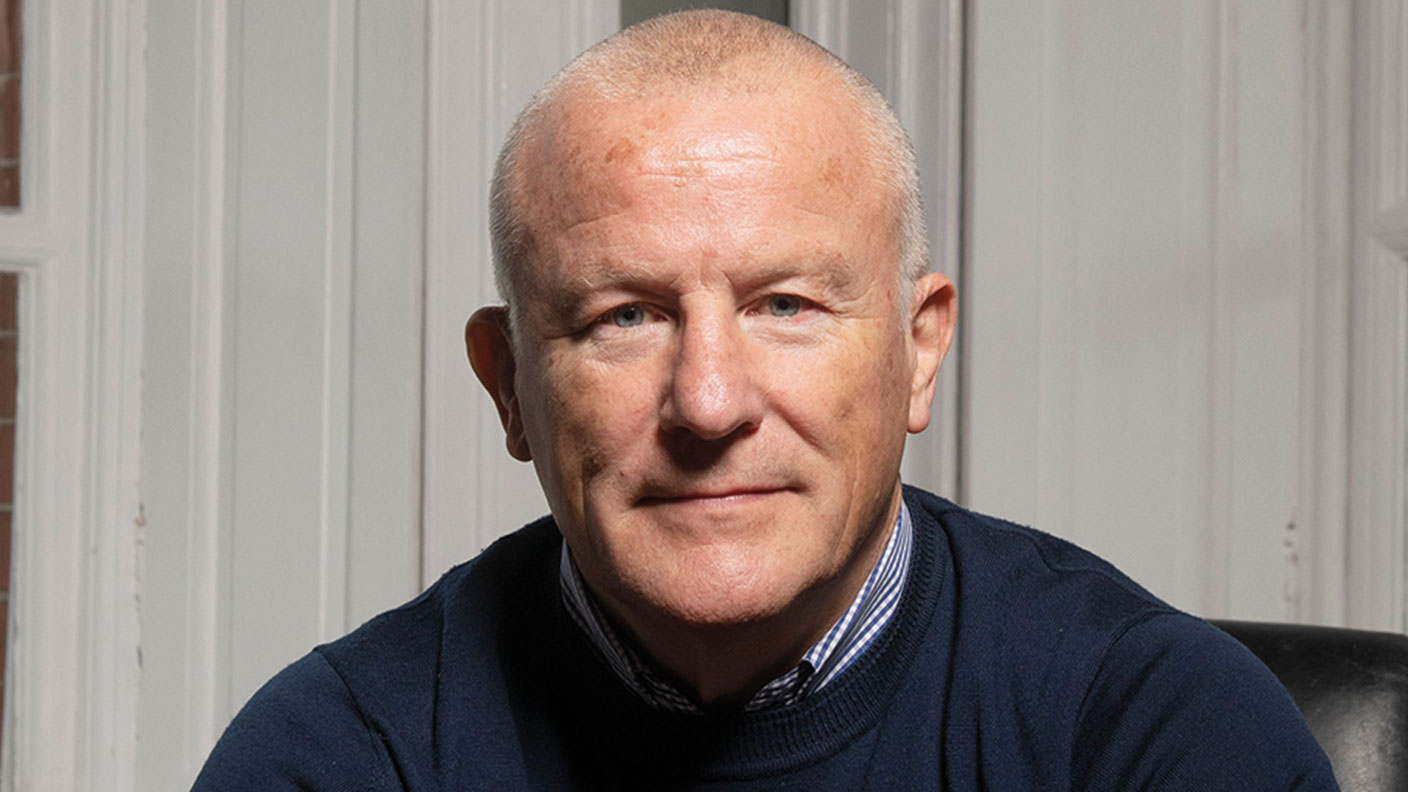What Neil Woodford’s debacle can teach us about liquidity
Star fund manager Neil Woodford got into trouble with small, illiquid assets. Scott Longley explains what investors should look out for when sizing up smaller companies.
Get the latest financial news, insights and expert analysis from our award-winning MoneyWeek team, to help you understand what really matters when it comes to your finances.
You are now subscribed
Your newsletter sign-up was successful
Want to add more newsletters?

Twice daily
MoneyWeek
Get the latest financial news, insights and expert analysis from our award-winning MoneyWeek team, to help you understand what really matters when it comes to your finances.

Four times a week
Look After My Bills
Sign up to our free money-saving newsletter, filled with the latest news and expert advice to help you find the best tips and deals for managing your bills. Start saving today!

Of all the issues highlighted by the implosion of the Woodford Equity Income Fund, liquidity is perhaps the most worrying. No one likes to feel they have been trapped by events outside their control. In the Neil Woodford saga there are two conflated issues. Firstly, the liquidity of the fund; secondly, the liquidity of some of the underlying firms. It is in the latter respect that some clarification of terms would be a good idea.
"There is some real ambiguity in this area," says Gervais Williams, senior executive director and fund manager at Miton. The term small cap can apply to a company that is worth £50m or more, or "some loss-making, privately owned businesses where valuations are completely speculative". Moreover, companies can be illiquid in different ways depending on who has the holdings and how much of a company's shares they control. A company worth, say, £10m, but with a spread of investors, could be more liquid than a company ten times the size, but with one very large shareholder on the register.
More broadly, Williams worries that if investors are scared off smaller companies because of limited liquidity, it will cut off access to the most dynamic sector of the economy and hamper its growth. We should be funding "companies that provide employment and taxes. It is profoundly adverse for the economy if we aren't doing that".
MoneyWeek
Subscribe to MoneyWeek today and get your first six magazine issues absolutely FREE

Sign up to Money Morning
Don't miss the latest investment and personal finances news, market analysis, plus money-saving tips with our free twice-daily newsletter
Don't miss the latest investment and personal finances news, market analysis, plus money-saving tips with our free twice-daily newsletter
The liquidity opportunity
Last year a regulatory change, Mifid II, made hunting for bargains easier. Owing to the mandated separation of research from other fees the universe of stocks covered by analysts has shrunk, with fewer brokers following fewer companies. "We have been helped by Mifid II," says Paul Mumford, fund manager at Cavendish Asset Management. "That has led to fewer brokers so it is in effect easier to find hidden gems, companies that simply have no one following them. The value in these companies will emerge in due course."
The buy-and-hold mantra of long-term investing is especially relevant to companies at the smaller end of the scale. "I'm a big fan of investment into unquoted and illiquid firms," says Ben Yearsley, director at Shore Financial Planning. "However, with this type of investment you need to buy and forget about it for at least a decade. Unfortunately most investors don't have the patience for patient capital. Woodford had the right structure with the Patient Capital Trust, but I'm not sure that he had the right type of investor."
Expect the unexpected
Others are more worried about being in companies that are too rich for their tastes. In the realm of Aim IHT portfolio services, for instance, most are invested in a similar basket of popular qualifying stocks. English, who works in this area, says he tries to avoid the names that recur the most within other portfolios. English is referring to the potential for the government to look again into the tax treatment of shares in companies that qualify for business relief. Unfounded fears late last year that the Treasury was primed to make a move were among of the factors behind the fourth-quarter slide in Aim share prices.
With Aim stocks and other small caps, outside events have to be monitored as much as with large caps, but always bear in mind the potential for greater losses due to illiquidity, greater volatility and a higher chance of corporate failure.
"However, if you get it right then the rewards are potentially much greater than, say, with FTSE 100 companies," says Yearsley. As long as investors are aware of the risk and reward of small caps and the problem with Woodford is that many would appear to have been unaware of just how risky some of his investments really were then issues around liquidity shouldn't loom too large.
Get the latest financial news, insights and expert analysis from our award-winning MoneyWeek team, to help you understand what really matters when it comes to your finances.
-
 Should you buy an active ETF?
Should you buy an active ETF?ETFs are often mischaracterised as passive products, but they can be a convenient way to add active management to your portfolio
-
 Power up your pension before 5 April – easy ways to save before the tax year end
Power up your pension before 5 April – easy ways to save before the tax year endWith the end of the tax year looming, pension savers currently have a window to review and maximise what’s going into their retirement funds – we look at how
-
 Neil Woodford’s back – but has he really learned anything?
Neil Woodford’s back – but has he really learned anything?Opinion Disgraced fund manager Neil Woodford is planning a comeback. But he doesn’t seem to have learned much from his many mistakes. So why would anyone invest with him now?
-
 Neil Woodford’s back – but sometimes sorry isn’t enough
Neil Woodford’s back – but sometimes sorry isn’t enoughAdvice Neil Woodford’s funds blew up in 2019. Now he is on the comeback trail. But his apologies are unconvincing.
-
 Woodford investor? Your first payment is coming soon
Woodford investor? Your first payment is coming soonNews Private investors left stranded by the collapse of the Woodford Equity Income fund will soon be getting at least some of their money back. But they will have to wait a while longer to see how much more – if any – they will receive.
-
 Neil Woodford continues to cast a shadow over his successor at Invesco
Neil Woodford continues to cast a shadow over his successor at InvescoFeatures Mark Barnett, former star manager Neil Woodford’s successor at Invesco, has applied the same formula, and is struggling.
-
 Is it time to buy Patient Capital Trust?
Is it time to buy Patient Capital Trust?Features Neil Woodford’s Patient Capital Trust has been taken over by asset manager Schroders. The share price has surged - but should you buy in? John Stepek looks at the trust’s prospects.
-
 Neil Woodford: no silver lining for his investors
Neil Woodford: no silver lining for his investorsEditor's letter Neil Woodford made every mistake it is possible to make as a money manager. And his investors have been stiffed. But however wrong it all went, Woodford never stopped taking the fees.
-
 Woodford believed his own hype – now his investors are paying the price
Woodford believed his own hype – now his investors are paying the priceFeatures Neil Woodford was once one of the brightest stars in Britain’s investment firmament. Then he came crashing down to earth. John Stepek explains what went wrong.
-
 Woodford’s empire collapses – what happens to his investors now?
Woodford’s empire collapses – what happens to his investors now?Features With Neil Woodford getting his marching orders and his funds being shut down, John Stepek explains what it means for his former empire, and for those with money locked in.